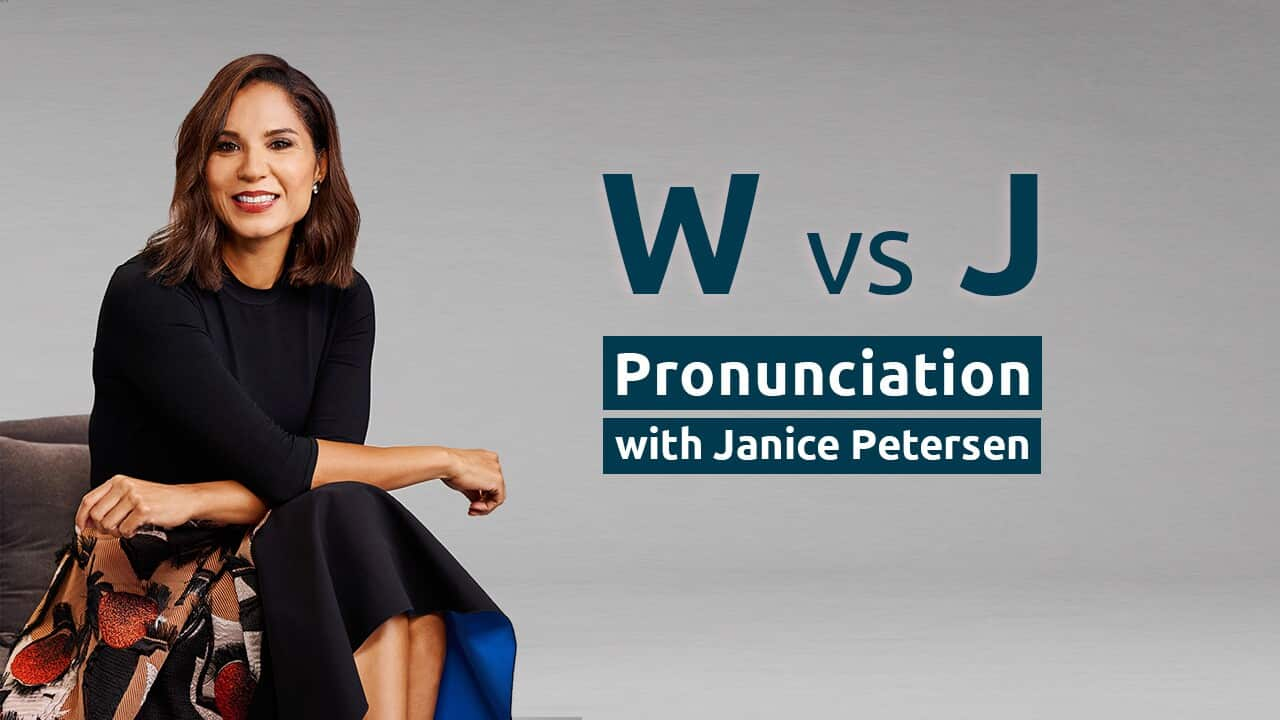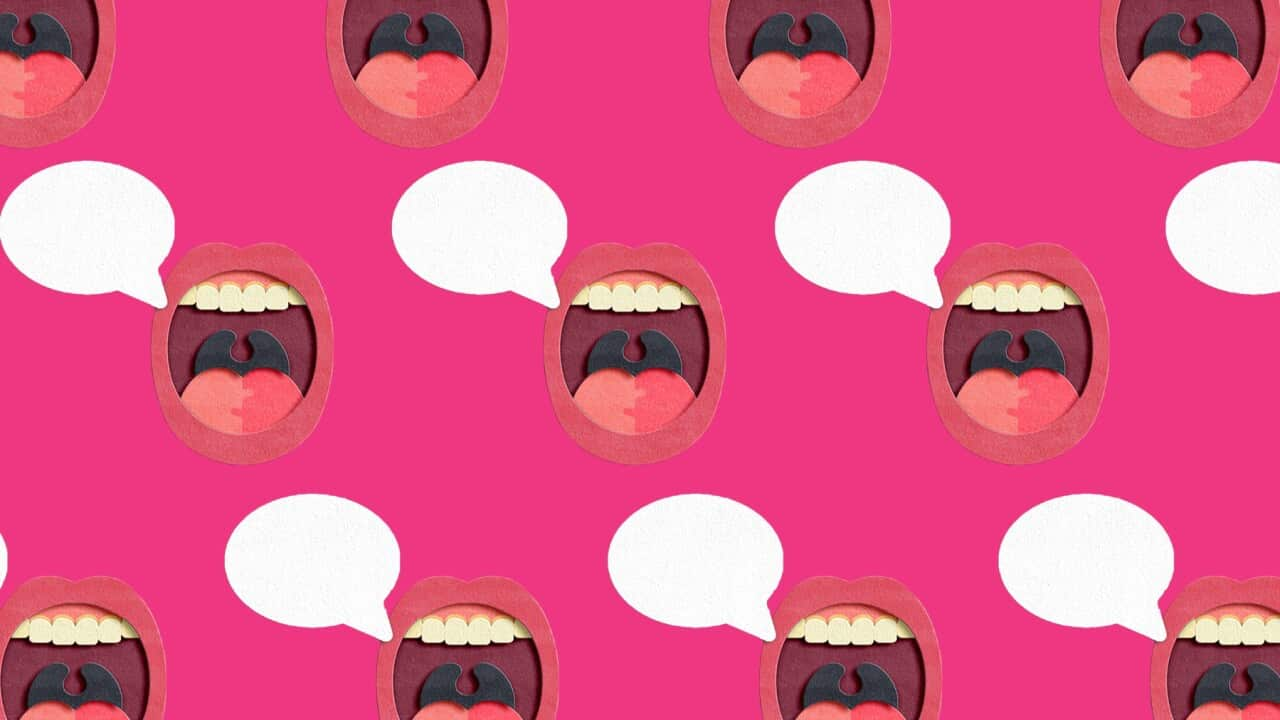Key Points
- Learning Objectives: can pronounce /ʤ/ and /w/ sounds
- L1 Influence: /ʤ/ can be difficult to pronounce for Arabic, Vietnamese, Swedish, and German speakers while /w/ can be difficult to pronounce for Mandarin, Swedish and German speakers
- Text: Down came a jumbuck to drink at the billabong Up jumped the swagman and grabbed him with glee And he sang as he stowed that jumbuck in his tucker bag "You'll come a-Waltzing Matilda, with me”. Waltzing Matilda, Waltzing Matilda "You'll come a-Waltzing Matilda, with me" And he sang as he stowed that jumbuck in his tucker bag "You'll come a-Waltzing Matilda, with me".
- Minimal Pairs : /w/ war weep wet - /ʤ/ jaw jeep jet
This lesson suits all learners at all levels.
Transcript:
(Note: This is not a word-for-word transcript)
A famous Australian song called Waltzing Matilda is a traditional Australian song.
The words were written by a famous Australian poet called ‘Banjo Paterson’ and for a short time it was even Australia’s national song.
This is a great song to practice pronunciation with. Today we’re going to focus on two sounds that many learners find tricky.
The /w/ in ‘waltzing’ and the /ʤ/ in ‘jumbuck’.
A waltz is a type of dance, and in the song the phrase ‘waltzing Matilda’ means walking around with everything you own on your back.
The word ‘jumbuck’ is an old slang word for sheep.
Let’s start with some word pairs to see if you can hear the difference between the /w/ and /ʤ/ sounds:
- war and jaw
- weep and jeep
- wet and jet
They may sound similar, but we make these sounds in very different ways.
You make the /w/ sound by moving your lips together as if you are going to whistle.
Your tongue should be in the centre of your mouth and your teeth shouldn’t touch.
Try practising this sound by repeating these words after me:
- war
- wet
- weep
- waltzing
The /ʤ/ in ‘jumbuck’ is made in a different way.
You need to move your tongue so that the front tip touches the roof of your mouth, just behind the hard ridge.
Your teeth should only be slightly apart and the corners of your lips are in, but not closed.
You then build up air and release your tongue to let the sound out.
This sound is voiced so you can feel the vibration in your throat.
Try holding the sound for a long period to get the tongue position and the mouth shape right.
Now if you’re ready, try it with me by repeating these words:
- jar
- jet
- jeep
- jumbuck
How about we give it a try with some song lyrics?
Let’s start with the part of the song that talks about the jumbuck. Listen for the /ʤ/ sound in ‘jumbuck’, ‘up’ and ‘jumped’. You’re welcome to repeat after me:
Down came a jumbuck to drink at the billabong
Up jumped the swagman and grabbed him with glee
And he sang as he stowed that jumbuck in his tucker bag
"You'll come a-Waltzing Matilda, with me".
Here’s the part of the song that has the /w/ sound. You can say it with me if you like:
Waltzing Matilda, Waltzing Matilda
"You'll come a-Waltzing Matilda, with me"
And he sang as he stowed that jumbuck in his tucker bag
"You'll come a-Waltzing Matilda, with me".
Let’s hear how some other learners are doing, who is with us today?
SBS Producers
Hi Janice!
Alex
I'm Alex from the Greek program.
Vrishali
I'm Vrishali from SBS Hindi.
M P
I'm M P from the Punjabi program.
Dinita
And I'm Dinita from SBS Nepali.
SBS Producers (singing)
Waltzing Matilda, Waltzing Matilda
"You'll come a-Waltzing Matilda, with me"
And he sang as he stowed that jumbuck in his tucker bag
"You'll come a-Waltzing Matilda, with me".
Janice
They sounded great, didn’t they!
You might like to teach this song to your kids.
Well done! You now know how to pronounce the /w/ and /ʤ/ sounds in this great Aussie song.
CREDITS
Thanks to our educational consultant, Natalie Oostergo and SBS Radio producers Alexander Anyfantis, Vrishali Jain, M P Singh and Dinita Rishal.






